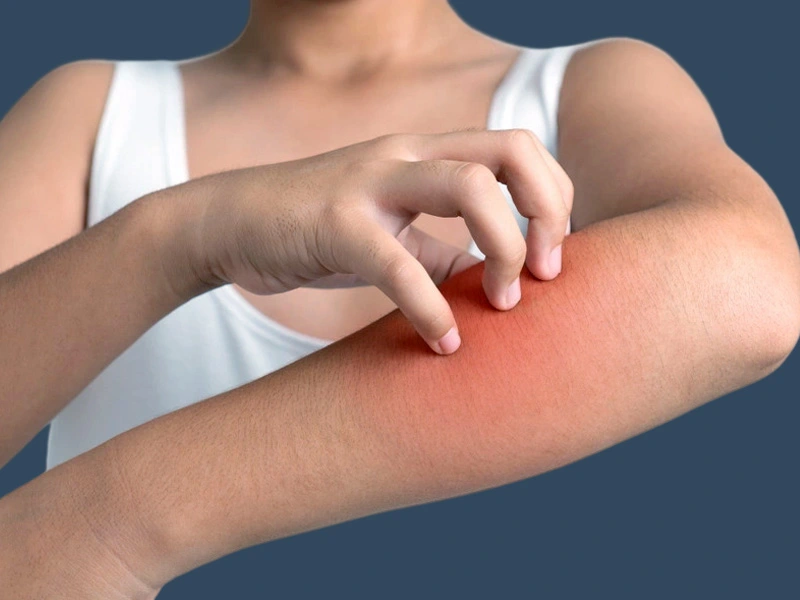When using RTV-2 liquid silicone materials to create molds, accidental skin contact with the liquid silicone is inevitable. But does this exposure potentially cause harm or trigger skin allergies? Below, we will provide you with information regarding the risks associated with allergic reactions caused by liquid silicone exposure.
Silicone possesses a remarkable level of inertness, rarely undergoing reactions with other substances, including the skin. RTV-2 silicone materials are generally considered to have low allergenicity, especially in the case of platinum-cured silicone, which have a minimal likelihood of causing allergic reactions. This is because platinum-cured silicone is purer than regular silicones and meets safety standards for food and skin contact.
Among RTV-2 silicone materials, the B component of tin-cured silicone (tin-based curing agents) has the most potential for allergenic reactions. This is because the composition of tin-based curing agents includes dibutyltin dilaurate and dibutyltin dioctanoate.
 allergic erythema on the arm
allergic erythema on the arm
1. Symptoms of Silicone Allergy
Silicone allergies are generally rare, but they do occur in a small number of individuals. If you are allergic to silicone, your immune system will react excessively to it, leading to an allergic reaction. Symptoms of silicone allergy can vary from person to person. Below are some common symptoms. If you experience any of these symptoms after coming into contact with RTV-2 liquid silicone, it is important to seek medical attention immediately.
- Erythema (reddening of the skin)
- Itching (Pruritus)
- Edema (excessive fluid accumulation in tissues)
- Dermatitis (skin rash)
- Vesicle (blister)
- Measles (infectious viral illness)
- Dyspnea (difficulty in breathing, in severe cases)
The above list may seem alarming, but most individuals who are allergic to silicone experience only mild symptoms, often localized to the area of contact.
2. How to Verify Silicone Allergy
If you suspect that you may have an allergic reaction to RTV-2 silicone material, the simplest approach would be to apply a small amount of liquid silicone onto a patch of skin. Make sure that the skin area where the silicone is applied does not have any wounds. Then, observe for a period of time to see if any adverse reactions occur. If you notice any redness, irritation, or itching on the skin where the silicone was applied, immediately wipe off the liquid silicone and rinse the skin thoroughly with plenty of water. If you experience more severe discomfort, seek medical attention promptly.
3. How to Prevent Silicone Allergies
If you discover yourself to be allergic to RTV-2 silicone materials, it is imperative that you refrain from any contact with such silicone-based products. Whether you are allergic to silicone or not, exercising caution when using products containing liquid silicone is essential. Wear waterproof gloves to prevent skin contact. For the use of tin-cured silicone, it is also recommended to wear respiratory protection and operate in a well-ventilated area.
Conclusion
While silicone allergies are extremely rare, it does not mean they do not exist. As demonstrated in this article, some potential symptoms of silicone allergy can be life-threatening.